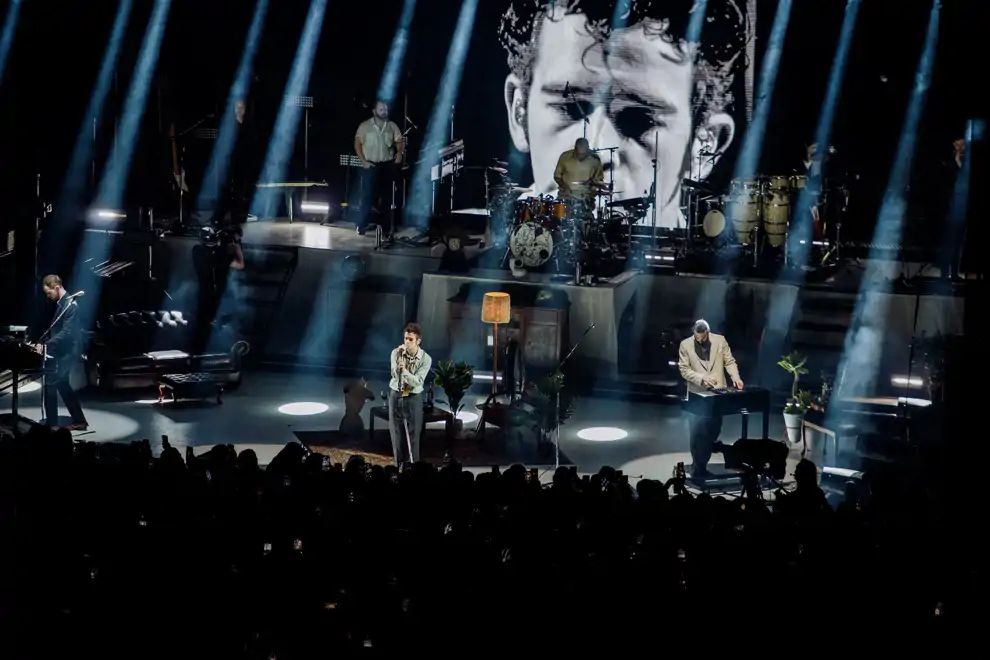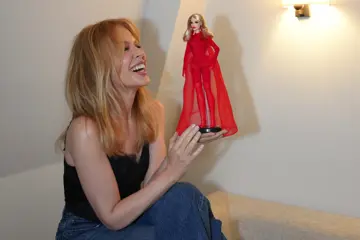If the Australian music industry is serious about getting younger audiences to come to live music events—especially those showcasing new original Australian sounds and acts—there are a couple of initiatives that could make a difference.
Suggested at a music industry forum held in Meanjin/Brisbane this week were underage gigs, cheap music passes for fans turning 18, and a broader push for Australian quotas in streaming services and, via Michael’s Rule, making Australian support acts mandatory at international tours.
The major apprehension that confronts the local music industry is that when things are already gloom and doom, has it lost its next generation(s) of consumers?
Among the many troubling findings from Creative Australia’s inaugural Soundcheck report from early April was that 18-to-24-year-olds are no longer the major consumers of music festivals post-COVID.
Before the pandemic, that age group comprised 41 per cent of all ticket buyers. But in 2022/23, that slumped to 27 per cent, and the younger crowd slumped from 41 per cent of all ticket buyers in 2018/19 to 27 per cent in 2022/23, and the mid-to late-20s group had taken over.
Don't miss a beat with our FREE daily newsletter
It was a worrying statistic. At a time when they would have normally been out seeing their first gigs as rites of passage, as their elder siblings and parents had done before, they were cooped up at home and listening to streaming services that were giving little in the way of discovering new Australian music.
Already disengaged from live music, 18—24-year-olds were further taking the brunt of the cost-of-living crisis. But are they, in fact, running their own events like bush doofs and community tribal gatherings instead?
The music industry had every right to worry: can this behaviour be changed, or is it a sea change in youth culture?
Earlier this week, the Australian Live Music Business Council (ALMBC), along with The Push, QMusic, Association of Artist Managers (AAM) and Gyrostream, held a national forum to solve the topic “Future Audiences – Are Young People Into Live Music?”
Moderated by Kriza Canzon of Gyrostream, the panel was chosen for its youth, its background in DIY, its belief that any government intervention in the music industry should only be temporary, and its joy that there’s no greater exaltation in life than seeing a gig.
Claire Qian, a paralegal at Media Arts Lawyers, started out at 15 volunteering at Melbourne youth DIY organisation FReeZA to meet like-minded music fans, label manager at Push Records after high school, curated shows and was a booker for Groovin The Moo.
Queer punk singer-songwriter Ixara also runs her own Anti Dismal label, a DIY all-ages, DIY event management, and sell-out under-age shows.
Canberra-based Lucy Anh, Program Manager at Music ACT and a performer under her earth name Sugarman, had a TV slot at age 15, worked at Canberra music venue group UCLivex overseeing programming and marketing for their venues and festivals as UC Refectory and Stonefest, presents TOPS on triple j Unearthed, working alongside Dr Anna Hartman at the Australian National University on a study about live music market dynamics, and doing a part-time law degree at the University of Canberra.
Changed Experience
Ixara: “Teenagers these days are not consuming through radio. It’s more Spotify-specific and curated music, so it’s a bit harder for them to ‘get’ live music.
Lucy Anh: “There was definitely a change in behaviour post-COVID in Canberra (where she lives). Canberra is very much a uni town, and it’s a very transient place. A lot of people going in and going out are in the 18 to 24 demographic.
“For two or three years, that demographic was stuck inside and didn’t get to go out. They didn’t have the normal experiences. I think we’re seeing that flow-on now because people who were in Years 11 and 12, just about to turn 18, didn’t see (the live experience) around them, and there wasn’t anything they really looked forward to wanting to be doing that.
“When they turned 18, and the lockdowns were lifted, the flow ended. Youth culture has changed in that effect. There was always going to be a blip in the system with habits. I remember when I was turning 18, I was looking at the older kids and seeing what they were doing (as) rites of passage.
“For young people going and experiencing things like Groovin The Moo and Spilt Music, that kinda stopped.
“It’s special to see that fighting spirit come out of COVID. The EDM community built around bush doofs. EDM and punk are what’s happening in Canberra; they're the communities for young people right now.”
Underaged Shows
These were popular some years back, but venues don’t care for them, especially these days, because they’re a financial risk because there’s no relying on bar takings. However, some State Governments have given grants to those who will host such shows.
Ixara says the first reaction at these is, “You fall in love head over heels, the audience is so untapped, and they'll stay audiences for life. How are you supposed to foster future talent if they don’t even have the chance to experience live music? How are you supposed to fall in love with live music if you can’t even experience it?
“Investing in all-ages shows is creating the next generation of fans and the next generation of musos. There’s no how-to guide in the music industry, so having them experience it in the first place is what really does it.
“How are you supposed to foster future talent if they don’t even have the chance to experience live music? How are you supposed to fall in love with live music if you can’t even experience it?”
As a 14-year-old, Ixara played in a band called Sunday Service, which gigged around Brisbane’s Fortitude Valley. Because of her age, gigs were hard to get. Some 18+ venues took the chance, but she could not attend soundcheck and had to leave immediately after the show.
So she created her own platform, got public liability at 14 (“You don’t have to say how old you are when you apply for the insurance”), founded a community hall and showcased her friends’ bands. She admits she’s not popular with the woman who runs hers: “There’s always a mess after and kids are doing graffiti and it’s pretty shit but I’m like ‘Sorry.”
Her advice to any young person who wants to start their own underage gig? “Don’t get arrested!”
For Lucy Anh, underage gigs and audience development are essential for the music industry to work out its solutions. “You don’t want an industry to be reliant on government hand-outs forever.”
Other initiatives, such as building up regional touring circuits and attracting its audiences, are also important.
“Subsidised tickets is one idea, upskilling, making sure our committees and panels and advisory boards are diverse, and having more discussions among us, so it’s a holistic approach.”
Culture Passes
This is something that more and more local industry executives are looking at. UK culture passes can be bought for £18 for a music fan who turns 18. That would be about AU$34.55.
Ixara: “That would be great, for $35. Kids can’t afford tickets for $70 to $100. Imagine being a parent and you have to take your kids, spending on that, and parking, it’s not affordable.”
Government Role In Exposing Aussie Acts
Claire Qian: “The biggest role the Government has had to play thus far has been grants. With Music Victoria, I’ve been involved as an assessor for applications for live music and festivals.
“But rather than just funding, it should be an industry-wide and cultural thing we have to look at. Reinstating Michael’s Law to make sure a local artist is supporting an international act would be really helpful to get those artists out there and really support their careers.
“From a festival perspective, as a music programmer, I’m all about supporting local artists and making sure they get the representation they deserve on festival lineups.
“I think definitely, as an industry, we should be having more conversations about ensuring that festival lineups are reflective of Aussie music. Then, as a broader consequence, patrons who do come to these festivals see Aussie music; they’re exposed to it and hopefully will be inspired if they are artists themselves.
“There’s a huge change happening in festivals, especially in the multi-genre model. The festivals that have stood out are the single-genre music. The electronic festivals are doing super-well and where young people are resonating at.”
















